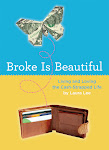Allied to this question is the kindred question on which we so often hear an innocent British boast--the fact that our statesmen are privately on very friendly relations, although in Parliament they sit on opposite sides of the House. Here, again, it is as well to have no illusions. Our statesmen are not monsters of mystical generosity or insane logic, who are really able to hate a man from three to twelve and to love him from twelve to three... If our statesmen agree more in private, it is for the very simple reason that they agree more in public. And the reason they agree so much in both cases is really that they belong to one social class; and therefore the dining life is the real life. Tory and Liberal statesmen like each other, but it is not because they are both expansive; it is because they are both exclusive.
Chesterton was writing about early 20th century England, but his observation is every bit as true today.
The New York Times reports that the median net worth of members of Congress is about $913,000 compared to the $100,000 for the general population.
Nearly half the members of Congress are millionaires. In contrast, only five percent of the general population has a million or more in the bank. (Or stocks and so on.)
Rather than being a straightforward case of politicians being bought and paid for by lobbyists, they are influenced by what they are exposed to and who they associate with-- other super rich people.
Under the current system, it takes huge boatloads of money to run a political campaign. That guarantees that most of the public will be represented by people from a different socio-economic status than their own.
I began to wonder what would happen if, rather than choosing our representatives geographically, we required them to represent us by tax bracket. After all, doesn't a laborer in California have more in common with a laborer in South Dakota than he has with a millionaire in his own state? Doesn't a Texas oil baron have more in common with a Wall Street billionaire than he has with a waitress in his own state?
What do you suppose our congress would look like if we had an electoral college, not for states, but for socio-economic groupings? What types of laws might we have? How would our national priorities change or would they?






